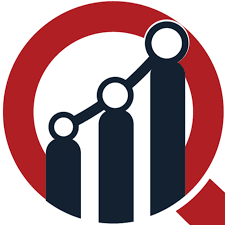The Access Control as a Service (ACaaS) market has emerged as a critical segment within the physical and digital security ecosystem. By offering cloud-hosted solutions for identity authentication and access management, ACaaS enables organizations to control entry into facilities and systems through a centralized, remotely accessible platform. This innovation shifts the burden of maintaining complex infrastructure to service providers, granting customers greater flexibility and enabling seamless scalability.
Digital Transformation & Cloud Adoption
Enterprises across industries are accelerating their adoption of cloud-based security platforms. ACaaS aligns perfectly with this digital shift by offering a subscription-driven model, replacing heavy upfront investments in hardware and software with predictable operational expenses . This flexibility appeals especially to growing organizations and distributed enterprises, allowing them to expand access control across various locations without logistical bottlenecks.
Addressing Cyber‑Physical Security Needs
A key driver of ACaaS is the convergence of cyber and physical security. In an age of elevated cybersecurity threats, organizations require solutions that unify physical access logs with digital event tracking and threat intelligence . ACaaS platforms offer centralized audit trails, encrypted data backups, and compliance monitoring—features crucial for regulated sectors like healthcare, finance, and government .
Technological Trends
Mobile & Biometric Access
ACaaS is advancing beyond traditional keycards toward mobile credentials, enabling access via smartphones using Bluetooth, NFC, or QR codes. This not only boosts convenience but also reduces touchpoints and enhances hygiene awareness. Meanwhile, fingerprint and facial recognition technologies are increasingly integrated for higher security and streamlined user experience .
IoT and Smart Infrastructure
Integration with IoT devices—such as smart locks, cameras, and sensors—is transforming ACaaS into a smart ecosystem. These interconnected systems enable real-time alerts and coordinated responses, representing central infrastructure for smart buildings and cities.
AI‑Powered Analytics
Artificial intelligence and machine learning are enhancing ACaaS platforms with behavioral analytics, anomaly detection, and predictive alerts. These capabilities help identify suspicious patterns like tailgating and facilitate proactive risk management.
Zero‑Trust & Attribute‑Based Control
Modern ACaaS architectures are increasingly aligning with zero‑trust principles and adopting attribute-based access control (ABAC). These frameworks make authorization decisions by evaluating user and environmental attributes in real time—ideal for complex, distributed environments.
Market Drivers
Regulatory Compliance
Rapidly evolving standards in data privacy and security—such as GDPR, HIPAA, PCI DSS, and SOC2—are compelling organizations to adopt audited, tamper-resistant access systems. ACaaS meets this need by providing automated logging, encryption, and compliance-ready reports.
SMEs & OPEX Preference
Small- and medium-sized enterprises (SMEs) with limited IT budgets are adopting ACaaS as a cost-effective alternative to capital-intensive on-premise installations. Subscription billing spreads costs predictably while delivering enterprise-grade protection.
Remote & Hybrid Work
The widespread adoption of mobile teams and hybrid work models demands secure, flexible access management. ACaaS systems empower administrators to manage credentials remotely in real time, improving operational resilience .
Smart City & Infrastructure Projects
Governments and commercial developers developing smart infrastructure prioritize efficient and secure access control for public facilities and urban systems. ACaaS is increasingly embedded into critical infrastructure projects and intelligent city initiatives.
Challenges & Limitations
Data Security & Privacy
Storing sensitive access logs and personal data in the cloud raises concerns about data sovereignty, breach risks, and vendor trust. Organizations must validate encryption methods, compliance standards, and incident response capabilities before adoption.
Internet Dependence & Connectivity
These systems rely heavily on consistent, reliable internet connectivity. Outages or bandwidth limitations can compromise access functions, especially in regions with unstable infrastructure.
Legacy Integration & Vendor Lock‑In
Many enterprises maintain legacy security infrastructure that may not natively integrate with cloud platforms. Integration costs and compatibility issues can slow deployment. Additionally, reliance on a single service provider can create long-term dependencies and inflexibility .
Supply Chain & Reliability
Providers may struggle with supply chain delays in hardware components or data center backups. Organizational transparency and infrastructure resilience are key trust factors for enterprise clients .
Competitive Landscape
The ACaaS sector includes both pure‑play cloud providers and traditional vendors transitioning from legacy systems. Notable players range from enterprise giants like Microsoft and Cisco to specialist firms like Brivo, Kisi, and AMAG. Mergers and partnerships are shaping the market, bolstering cloud-native offerings and targeting industry‑specific deployments .
Future Outlook
Looking ahead, the ACaaS market is set to evolve through enhanced AI, tighter integration with IoT and cyber‑physical systems, and wider deployment of zero‑trust architecture. As connectivity and cloud adoption deepen, ACaaS will become foundational to secure, scalable access control in enterprise and public infrastructure. Addressing deployment challenges—especially around security, integration, and connectivity—will be essential to unlock the next wave of adoption.
In summary, the ACaaS market represents a major shift in how organizations approach access security—moving from fragmented, on-site systems to unified, cloud-driven platforms. With ongoing innovation in mobile credentials, biometrics, AI, and IoT integration, ACaaS is poised to become the default model for scalable, remotely managed, and compliance-ready access control.
Related Reports:
| US Smartwatch Battery Market |
| US Plastic Film Capacitors Market |
| US Micro Inverter Market |
| US Gold Bonding Wire for Semiconductor Packaging Market |
| US Packaging Assembly Equipment Market |
